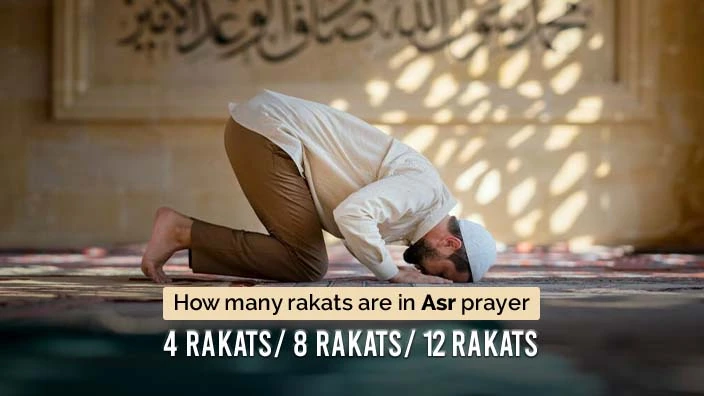For the Muslims; offering prayer is an obligatory act, if the same is not offered they may be held liable to the punishment. It is the foremost requirement, also from the new Muslim, who has just embraced Islam. The question regarding the rakat is asr prayer is frequently asked.
In this article we will be explaining every things about the essentials of islam including the significance of the prayers especially Asr prayer and how many rakat in asr prayer. It will also refer to the variety of benefits one can reap following the injunctions of Islam.
A Muslim prayer is offered to Allah in the afternoon hour of the day. The Asr prayer consists of four obligatory rakats. An additional four rakats are recommended to be performed before the obligatory rakat.
Table of Contents
- Evolution of the Prayers In Islam
- Five Pillars of Islam
- Is Salah Obligatory?
- Women Who are Menstruating?
- Significance of Offering Prayer in Islam
- How and When to Perform Salah
- Importance of Prayer in Islam
- Major Schools of thought in Islam on the Prayer
- What is Significance of Asr Prayer
- How Many Rakat in Asr Prayer?
- Benefits of Offering Salah
- What Do I Need to Do Before Asr?
- How to Pray Asr?
- Conclusion
- FREQUENTLY ASKED QUESTIONS
Evolution of the Prayers In Islam
Offering prayer is an obligation on Muslim which became mandatory during the visit of prophet Muhammad (PBUH) to the seven skies. Before the arrival of prophet Muhammad (PBUH), other nations were obligated to offer prayer in different ways. Some nations before prophet would offer prayer by singing poetry in the name of Allah. Others would offer pray by giving charity food to other tribes or poor people on particular occasions.
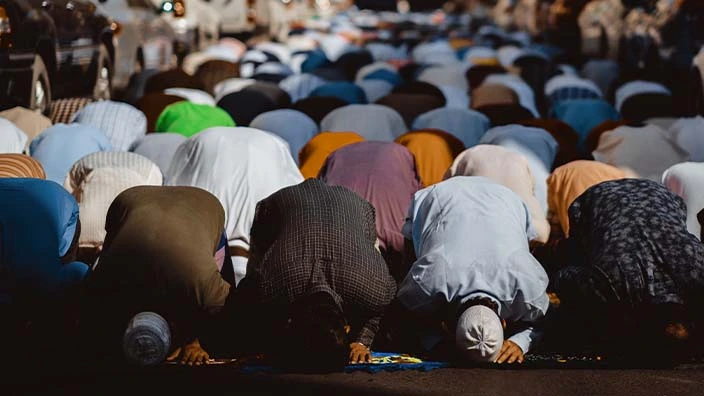
During the visit of shab e miraj, prophet Muhammad (SAW) was given the order to offer 50 prayers a day. Prophet agreed to this. But upon meeting with prophet Musa (AS), prophet returned back intermittently and reduced it to five times a day. From Allah, it was a gift given to Muslim Ummah. A gift through which they can talk, connect and establish their link with Allah (SAW).
Related Article: How to Pray Maghrib
Five Pillars of Islam
There are five pillars of islam which include the belief and practices of islam. These five pillars are: shahada, salah, fasting (Roza), Haj, Zakat. Salah or prayer is the second pillar of islam and is considered as the fundamental act of worship. There is a hadith in Bukhari Sharif, which says ‘The only difference between muslim and non-muslim is Namaz.’
Muslims are obligated to offer five times a day on the prescribed time and right in the manner shown by the Holy Prophet Muhammad (PBUH).
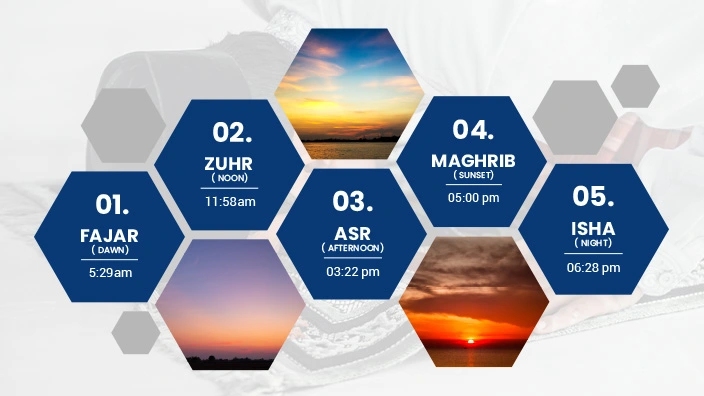
Our prophet Muhammad (SAW) said that, “SALAH IS THE PILLAR OF ISLAM”. It means it is the fundamental or backbone of faith. It is essential for Muslims to pray five times a day to connect with Allah, to seek his guidance and forgiveness, and to express their gratitude for His uncountable blessings.
Is Salah Obligatory?
Salah is compulsory for those who have reached the age of puberty. However, kids and mad people are exception to this. Allah commanded in the Quran about the obligation of prayer as: “O you who have believed, establish prayer and give zakah (charity). Whoever does that, seeking the countenance of Allah, then those are the successful”.
The Quran also mention in another place:
"And observe the prescribed prayer at the ends of the day and during the night's early hours. Indeed, the prayer at the break of day is witnessed." (Quran 24:55).
The above verses of Quran make it clear that prayer is an obligatory duty for all Muslims. Those who do not offer prayer will be punished on the Day of Judgement.
Women Who are Menstruating?
Islam gives women their due rights and command male member of society to respect women especially when they are giving birth or menstruating. While menstruating, women are not obligated to offer prayer. As soon as the bleeding stops woman can come back and offer the missed prayers.
Significance of Offering Prayer in Islam
Offering prayer is really important in Muslims lives. It helps us to stay close to God. It also gives you time and space to open your heart fully before God. It is through prayer that we connect and establish our links with God. It is the way to remember Allah. The word salah has been mentioned in Quran more than 70 times. It has been connected with the peace of mind and heart.
In Quran, Allah says: “ALA BE ZIKRILLAH E TATMA & ENNUL QULOOB” ( QURAN).TRANSLATION: AND BEWARE THAT IN THE REMEMBERENCE OF ALLAH, YOU WILL GET A PEACE OF MIND AND HEART.
How and When to Perform Salah
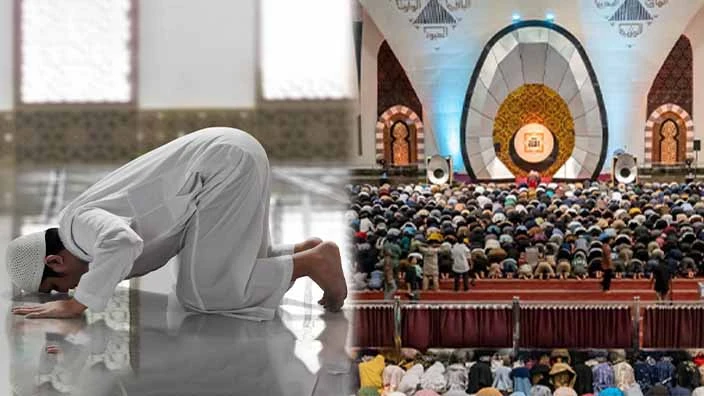
There are various steps that Muslims must follow in order to bow before Allah. These steps are mentioned in Quran and Hadith in detail. Some of the important steps before offering prayer is under:
- The intent to offer prayer
- Performing ablution
- Facing in the direction of kaaba
- Recitation of takbir(Allah o Akbar)
- Recitation of Quranic verses
Importance of Prayer in Islam
In Arabic prayer is also known as Salah. It is one of the five pillars of Islam and is considered as fundamental of the faith. During prayer, an individual is establishing a direct connection with Allah which results into a deep sense of spirituality and guidance in the lives of Muslims.
The primary sources of Islamic teachings that is Quran and Hadith, put emphasis on the immense importance of offering prayer and provide compelling reasons for Muslims to fulfill this noble and sacred duty.
Prayers in the Light of Quran
As we have mentioned earlier that the word of SALAH came in Quran so many times and in so many different places. Offering prayer is obligatory and the repeated mention of salah in Quran means that Quran put so much emphasis on prayers.
This is so because salah is the only thing that can differentiate between Muslim and non-Muslim. Keeping the emphasis on Salah in mind, it is apparent that salah is the symbol of Muslim and Muslim community. It is through salah that one can establish the difference between Muslims and non-Muslims.
The Quran repeatedly stresses the importance of prayer, and also highlight its role in the life of Muslim. It is described as a pillar of Islam and as a mean to forgiveness. For Muslims it is a source of guidance and a protection from heinous crimes and sins.
Below in the text we are quoting from different places in Quran about the significance of prayer.
A pillar of Islam “Indeed, prayer has been enjoined upon the believers at appointed times” (Quran, 4:103).
Seeking forgiveness “And establish prayer, for prayer restrains from immorality and wrongdoing”.(Quran, 29:45).
Source of guidance
“And those who believe and do righteous deeds and establish prayer and give zakah will have their reward with their lord, and there will be no fear concerning them, nor will they grieve”. (Quran, 9:112).
Protection from sins
“O you have believed; seek help through patience and prayer. Indeed, Allah is with the patient”. (Quran, 2:153).
Importance of Prayers in the Light of Hadiths
Hadith means the saying and teaching of prophet Muhammad (SAW). Hadiths are also what the prophet actions were. There are plenty of hadiths which further amplify the significance of prayer.
In hadith, it is describes as the “the light of one`s life”, a means of attaining paradise, and a connection between a servant and their creator.
The light of life
in Abu Dawud, prophet Muhammad said,” Prayer is the light of your faces and the radiance of your hearts.” (ABU DAWUD).
A Means to paradise
It is very important to know that prayer is not just an ordinary thing for Muslims, it is the way through which one attain paradise. Prophet Muhammad (SAW) said, “Whoever abandons prayer has destroyed his religion”. (TIRMIDHI).
Connecting with Allah
Prayer is very special ibadat and it is through prayer that an individual establish its relation with his/her lord. Prophet Muhammad (SAW) said, “prayer is a conversation between a man and his lord”. (TIRMIDHI).
The Impact of prayer in the life of a Muslim
By now we have discussed at length that prayer is one of the fundamental pillar of Islam and Islamic teachings. It is through prayer that one establishes a deep connection with his/her lord. In Quran it is said, that prayer forbids one from wrongdoings and compels one to spread the word of God. Offering prayers has so much significance in life.
In Quran, Allah says that Salah is the NOOR of a face. Offering prayer regularly is like going to gym regularly. Just like in gym, one`s body starts to form from day one till the end. Just like that, Salah also has great Impact in life whether that is an individual`s private life or collective life, whether it is about their place in society or in the whole world. Following are some of the major impacts of Salah in Life.
Spiritual growth It is through prayer that one establishes his links with Allah. Offering prayer is not just part of Islam, it is a practice all over the world in different religions. Through prayer, an individual is conversing with Allah. It is through prayer that one establishes deep links with Allah, which then translates into their spiritual growth.
The inner growth of individual is much more important than physical growth. Spiritual growth is what all human beings want in their life. It is through prayer that Muslim fosters their spiritual growth.
Moral discipline Muslims are obligated to offer prayers five times a day. Each of the five prayers has its own time. One cannot offer prayer when the time is over. It’s like you cannot offer FAJR when the sun rise. Each prayer has its own time and you cannot offer Morning Prayer during the noon.
Every prayer has its own time therefore offering prayer make one well-disciplined. It makes a natural routine of a human by getting up early in the morning and offer prayers throughout the day. It makes one disciplined and well mannered.
A sense of purpose Prayers provide a sense of purpose in one`s life. It instills this feeling in the heart that life is not just an ordinary usual thing and will vanish once you die. In contrast, it gives you a sense of maturity, a sense of purpose in your life.
Major Schools of thought in Islam on the Prayer
The five major school of thoughts in islam are Hanafi, Maliki, Shafi`i, Hanbali, and Jaf`ari. These schools have developed different interpretations of Islamic law including prayer. In this section, we will strictly adhere to the interpretation of prayer by these schools of thoughts.

Hanafi School: This is the largest and most widespread school of thought in Sunni Islam. In terms of prayer, this school of thought is flexible as compare to others. It is so flexible that it allows wide range of postures and movements.
Maliki School: It is the second largest school of thought in Sunni Islam. In the context of prayer, this school is stricter than Hanafi School. It requires strict adherence to the form and movements of prayer.
Shafi'i School: This school is more moderate than the previous both. This school takes the middle ground between the flexible Hanafi and strict Maliki School.
Hanbali School: It is the fourth and the moist strict school of thought in Sunni Islam. It requires most precise adherence to the form and movements of prayer.
Jaf'ari School: It is the largest school of thought in Shia Islam. In the context of prayer, this school is similar to the shafi`i school. It takes a middle ground between flexibility of the Hanafi and strictness of the Hanbali School. This school of thought put emphasis on the authority of imams.
What is Significance of Asr Prayer

Significance of the Asr prayer can be gauged from the Quranic Verses and traditions of the Holy Prophets Muhammad (PBUH) where the role and impact of Asr Prayer in the life of Muslims was accentuated. In the Holy Quran, it was mentioned by referring the word ‘believers’ as follows: -
“They are those who are punctual in the performance of their Prayer.”(Quran, 23: 9) Asr prayer makes us become more discipline to ourselves and our lives become more organized.
The Prophet Said:“Those who perform Asr prayer will not enter into Hell.”
At another place, Holy Prophet Muhammad (SAW) said:
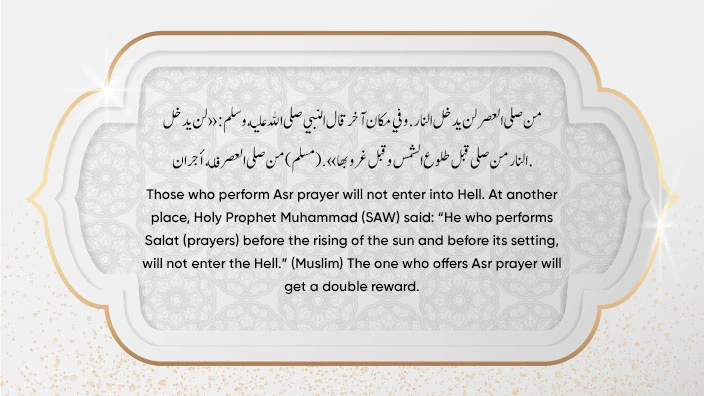
How Many Rakat in Asr Prayer?
There are total of four rakats in Asr prayer which is obligatory on every adult Muslims. Every Muslim is required to offer prayer five times a day. Asr is the prayer that is offered after noon and before sunset. It is also known as afternoon prayer.
What are Sunnah Rakats; Sunnah rakat in Asr prayer?
Examples of these confirmed sunnah prayers, as established in the Hanafi school of fiqh and some other related groups, include: "2 rakats before the Fajr prayer" "2/4 rakats before Zuhr and 2 after" "while 2/4 rakats before Asr prayer.
How is Asr Prayer Time Calculated?
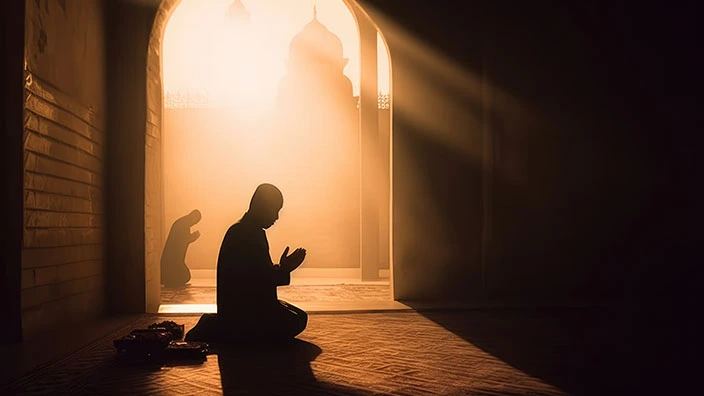
The Zuhr (noon prayer) and the Asr (afternoon prayer) are determined by shadow-lengths. The Zuhr prayer starts shortly after the sun has passed its highest point, where shadow-length is at its shortest. The Asr timing starts when this shadow-length has doubled in size.
Should a Muslim offer rakat in Asr prayer on time?
The Asr prayer ought to be offered within its time not before or after that. Not praying or delaying it from its prescribed time is a tremendous loss nullifying the importance of Asr prayer. For the loss of the Asr Prayer the Prophet Muhammad (PBUH) said:

Can We Determine Exact Time for Asr Prayer
Asr should be offered every day since it is obligatory. There is no specific time because of the movement of the earth. Every mosque has a calendar through which they specify the time in a particular place.
It is possible that in one given area there is time for Asr prayer but on the other side of the planet that would be the time of morning. So the time depends. Usually it is offered when the sun is halfway between the noon and sunset.
Benefits of Offering Salah
There are countless benefits of offering prayer. When a person is put into grave the first question that Gag and Maggog ask is about the prayer. Below are the benefits of offering prayers:

Having discussed the significance of prayers in Islam and the requirement of Asr prayer, also after sharing the benefits of offering prayers; lets shed some light on the method of performing asr prayer.
What Do I Need to Do Before Asr?
As we mentioned earlier, that before performing Asr you are required to do ablution or take a shower if you are not clean. Direct your face in the direction of kaaba.
How to Pray Asr?
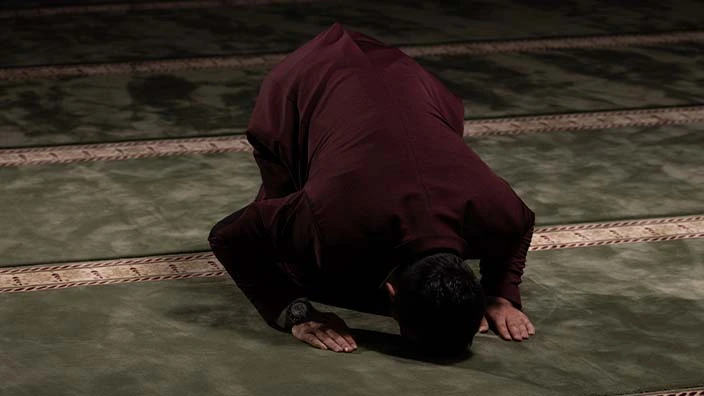
Following is step-by-step guide on how to pray asr.
1. Making intention: The first step to praying is to make intention to pray. You can do this in any language that you like. Various scholars have commented on this that it is respected if you make intention in Arabic but if you make intention in your mind in whatever language is fine. Making an intention is important.
2. Enter Qiyam and say the Takbir: Qiyam means standing position. In this position you fold your hands in front of you. Then raise your hands to ear lobes and say takbir (ALLAH O AKBAR).
3. Beginning of first rakat: Each rakat begins by recitation of surah al fatiha. Surah al fatiha is the first surah at the beginning of Quran. After recitation of fatiha you say Ameen.
4. Recite another segment of Quran: For the first two rakats, recite another segment of Quran. You can recite from any place you like but usually you can recite surah al ikhlas.
5. Enter Ruku and offer prayer to Allah: Ruku is a bowing position. In this position, you lean forward and put hands on your kness while your legs are still straight. In this position, recite the following verses three times:
SUBHAANA RABI AL AZEEM
6. Return to Qiyam: After reciting the above verses, return back to Qiyam and recite these words: SAMI ALLAH O LEMAN HAMEDA & RABBANA LAK AL HAMDO
7. ENTER Sujood: Sujood is a position in which you bow down and lower your head on the ground with your hand, nose and forehead touching the ground. As you lower yourself to sujood say “ALLAH O AKBAR”. When you are in sujood repeat these words: SUBHANA RABIAL ALA (3 TIMES).
8. Rise into Juloos: Juloos is the sitting position. In this position your knees should touch the floor with your both legs parallel to each other.
9. Enter sujood again to complete first Rakat: Return to the sujood position with your hand, forehead and nose touching the floor and repeat these verses three times. SUBHANA RABIAL ALA (3 TIMES).
10. Repeat the first rakat: Repeat the same process again to complete the second rakat. Repeat those verses mentioned above.
11. Recite Tashahud: At the end of second rakat, return to Sujood and sit in the position where your knees touches the floor with your both legs parallel to each other. During tashahud, recite these verses:
“At-tahiy-yatu lil-lahi was-salawatu wat-taiyibatu . Assalamu 'Alaika aiyuhan-Nabiyu wa-rahmatul-lahi wa-barakatuhu. Assalamu alai-na wa-'ala i-ba-dil-lahis-sali-hin. Ash-hadu al-la ilaha il-lal-lahu wa ash-hadu an-na Muhammadan 'abdu hu wa Rasuluh.”
12. Perform the third rakat: After finishing the tashahud, return to Qiyam and recite surah al fatiha. It is important to note that this time you do not need to recite another verse from Quran. This Rakat is identical to the first rakat.
13. Perform the fourth rakat: After completing the third rakat, rise back to the Qiyam position. Recite surah al fatiha as usual and you don’t need to recite another part of Quran.
14. Recite the tashahud: After sujood, return to Juloos. Your hands should touch your knees while your legs are to be parallel with each other.
15. End the prayer with Taslim: After completing the fourth rakat you are about to end the prayer. Turn your face towards the right direction and recite these words: ASSALAM O ALAIKUM WA RAHMATULLAH. TURN YOUR FACE TOWARDS LEFT AND RECITE THESE WORDS AGAIN.
The prayer is completed. As soon as you are finished with the prayer, raise both of your hands and seek forgiveness and peace from Allah (SWT).
Conclusion
Prayer as mentioned in Quran is the fundamental pillar of islam and it play a positive role in personality development, spiritual growth and closeness to Allah. In this article we have write down in detail about prayer, how to offer Asr prayer and how many rakats in Asr prayer.
Followed by evidence from Quran and Hadith that emphasizes the significance of prayer. We have also discussed various schools of thought and its interpretation of prayer. Lastly in this article, the impact of prayer on humans as individual and collective life has been discussed in the light of Quran and teachings of hadith.
FREQUENTLY ASKED QUESTIONS
What is the suitable time to offer Asr prayer?
In Islam every prayer has its own specific time. You cannot offer FAJR prayer in the day time. The Asr prayer is also known as the prayer at noon. It is the time between the afternoon and the sunset. It is required from the Muslims to offer Asr prayer at noon.
How many Rakat in Asr prayer?
There are four rakats for Asr prayer. In the first two rakats you are required to recite surah al fatihah followed by another segment from Quran. While in the last two Rakats you need to recite surah fatiha and there is no need to recite another segment from Quran.
When to make Dua for Asr?
It is really important to ask from Allah. As soon as you are finished with your Asr prayer, then raise both of your hands towards the sky and ask whatever wishes you have from Allah. He will surely reward you.
What is to be recited in each rakat of Asr?
This is very important because people get confused. In the first two rakats you need to recite surah fatihah along with another segment from Quran. While in the last two rakats, you can only recite surah al fatiha.
What is the impact of Asr prayer?
The impact of offering prayer is multiple; from physical and individual impacts to spiritual, moral and spiritual impacts. Offering Asr prayer is really important because it marks the end of the day. It is offered between the ZUHR and Maghrib prayer. It instills in heart the purpose of life and also strengthens the belief on the hereafter.

